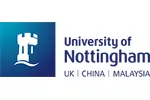

| The award | How you will study | Study duration | Course start | Domestic course fees | International course fees |
|---|---|---|---|---|---|
| MSc | Full-time | 1 year | October | - | - |
The MSc in Stem Cell Technology was developed in response to the training needs of a rapidly expanding scientific area, aiming to facilitate the careers of graduates in this innovative area of science and biomedicine.
Researchers and professionals with an understanding of stem cell technology and the international regulatory and ethical frameworks that govern stem cell use are vital to its applications to medicine and industry.
The MSc offers the necessary skills to enable the effective integration of stem cell science expertise with research, clinical and commercial applications.
We have designed a course that is able to deliver an intensive and applied knowledge base to interdisciplinary stem cell research and the transferable skills required to communicate and apply this learning.
The course will enable you to pursue a clear career path in either research or industry, with the necessary expertise to compete in an ever changing world.
The interdisciplinary course is suitable for those with a science related background, for example from biology, physical science or bioengineering degrees.
In addition, it is suitable for business, mathematics, and medicine graduates who wish to continue in their chosen disciplines with stem cell specialisations.
Entry requirements: Candidates must normally be graduates of an approved university, or other institution of higher education. The minimum requirement for entry is a 2(i) degree or equivalent.
IELTS: 6.5 in the IELTS exam (no less than 6.0 in any element)
TOEFL paper based: 600 in the TOEFL exam (no less than 5.0 in TWE)
TOEFL computer based: Computer based TOEFL of 250 with a TWE of 5.0
Key facts
Course Content
The course content covers the following key areas:
Stem Cell Laboratory Techniques - Stem cell culture and the specialist analytical skills to evaluate stem cells form a significant part of the MSc course.
You will be given state of the art practical training in the following areas of stem cell research:
Legal/ Regulatory Frameworks and Business Opportunities - The future of stem cell technology is dependent on the complex regulatory frameworks being developed within individual countries to govern the use, patenting and commercialisation of stem cells. As such, the course places considerable emphasis on the latest developments and on highlighting the current issues.
You will have the opportunities to examine the wide range of varying policies in the UK and other countries. Through both tutor-led tutorials and student-led sessions, the key issues will be debated with experts in stem cell ethics, law and patenting.
Clinical Applications - The challenges of delivering stem cells to the clinic are explored at several levels during the course.
Relevant to clinical translation, you will acquire skills and knowledge in the following areas:
Throughout the entire MSc course, emphasis is placed on the applications of the stem cell culture expertise gained in the research laboratory. Examples of clinical use of stem cell types will be discussed by leading clinicians.
This course comprises five core modules:
Please note that all module details may be subject to change.
In addition, you will complete a 60-credit Regenerative Medicine Research Project - this is an opportunity to undertake a major piece of independent research under the supervision of one or more of the faculty members.
The attention to experimental design, conducting research and analysing/presenting data is aimed to provide an insight into the nature of high quality research and allow you the opportunity to develop a specific area of current relevance.
Course Structure
The MSc in Stem Cell Technology is taught on a full-time basis over one year (usually from October through to September).
The taught sections of the course occur in the autumn and spring semesters, during which you will be required to undertake five compulsory modules worth 120 credits in total.
During the summer semester, you will undertake a three-month, 60-credit research project and produce a dissertation.
Assessment is based on coursework assignments, essays and laboratory reports, as well as a business plan e-portfolio and written examinations.
You can expect to spend approximately 50% of the taught course practically based in the laboratory.
Research, IT and presentation skills courses have been purpose-designed for the MSc Stem Cell technology by the University Graduate School.
Below are some suggested courses at other providers that you may also be interested in:
Graduate Diploma of Engineering (Industrial Automation) Graduate Diploma
Engineering Institute of Technology
Find out moreGraduate Diploma in Industrial Relations and Human Resource Management Graduate Diploma
University of Waikato
Find out moreIf you do not meet the entry requirements for this course then consider one of these postgraduate preparation courses from another institution:
Graduate Diploma of Engineering (Industrial Automation)
Engineering Institute of Technology
Find out moreGraduate Diploma in Industrial Relations and Human Resource Management
University of Waikato
Find out moreThere are 579 other courses listed from University of Nottingham. A selection of these are displayed below:
Academic English and Study Skills Preparation programmes Master's Qualifying Programme
University of Nottingham
Find out moreAdditive Manufacturing and 3D printing (Centre for Doctoral Training) PhD
University of Nottingham
Find out moreJoin the StudyLink email list and never miss a chance to turn your study abroad dreams into reality!

Find out more about studying in the United Kingdom